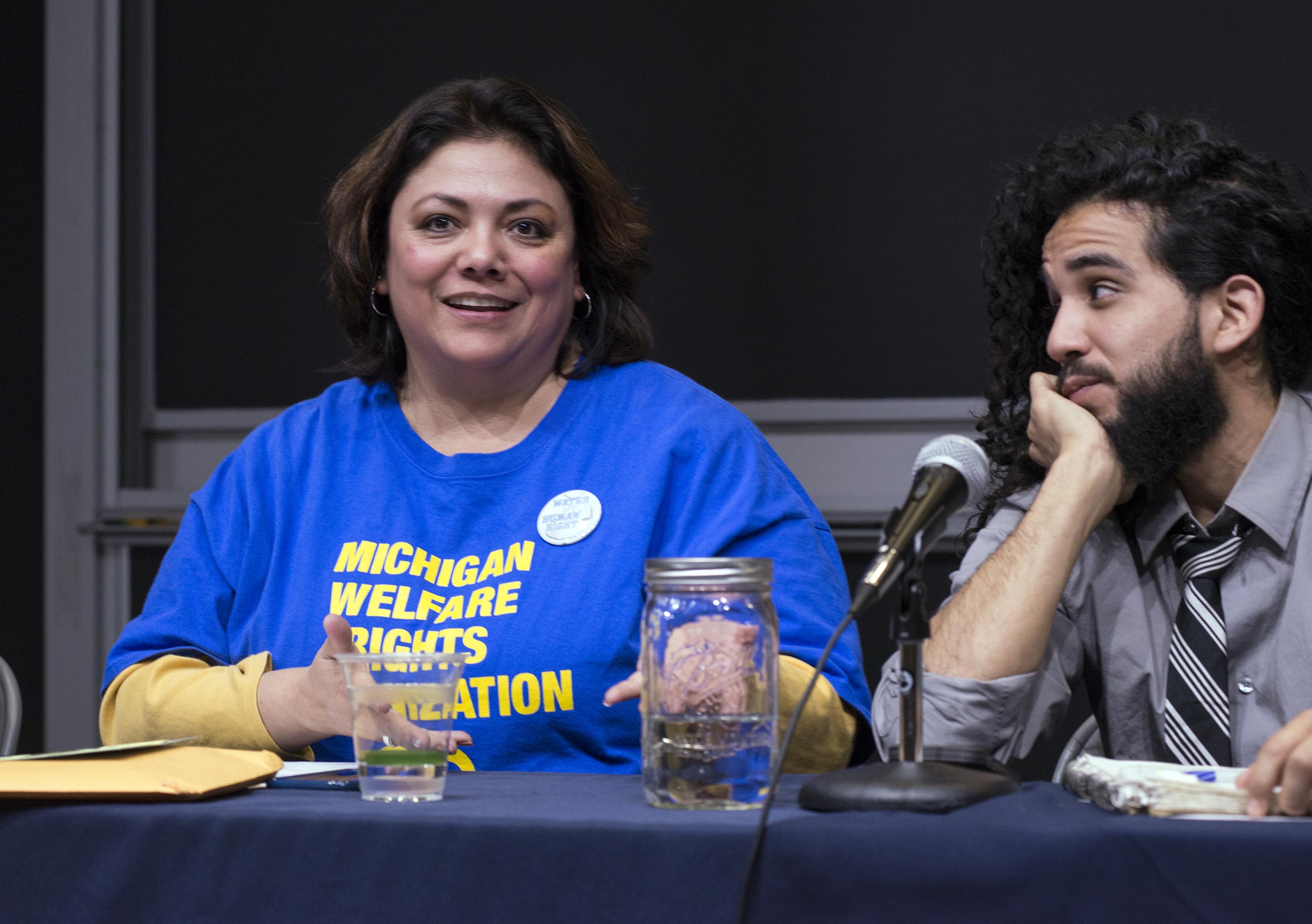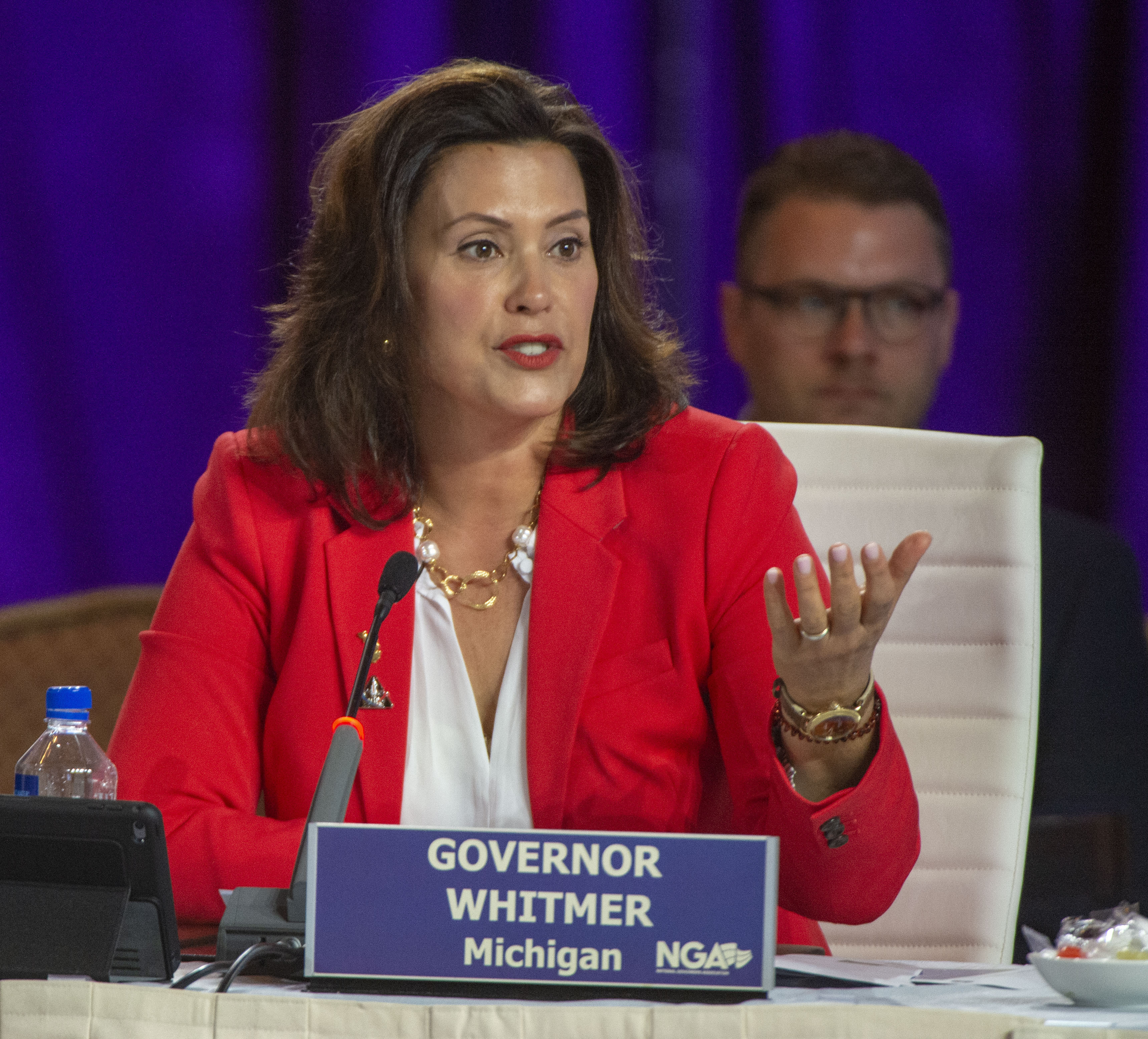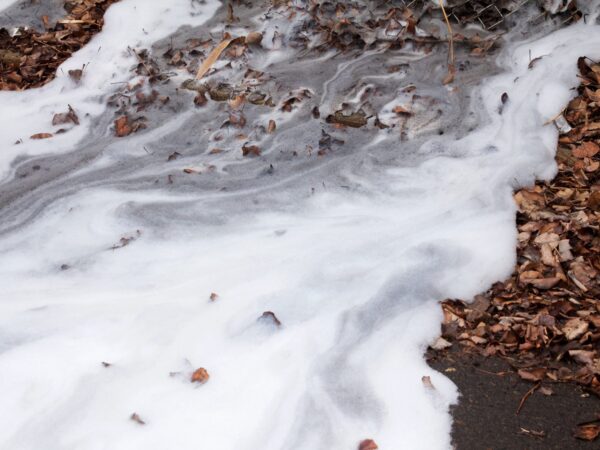
With the COVID-19 global pandemic continuing to spread throughout the U.S., Centers for Disease Control and Prevention guidelines have stressed the importance of staying hydrated and rigorously washing hands as a preventative health effort.
But for thousands of residents in Detroit, Flint, Benton Harbor, Hamtramck and other cities around southeast Michigan, following these guidelines is difficult when your water is shut off.
Last week, Detroit Mayor Mike Duggan and the Detroit Water and Sewage Department announced a moratorium on water utility shutoffs for the duration of the coronavirus pandemic, in addition to restoring water connections.
Under this plan, residents will have the cost of water restoration services covered by the state for 30 days. After that time, Detroiters at risk of shutoff will have to pay $25 to maintain their service so long as they apply for the Water Residential Assistance Program through the Wayne Metropolitan Community Action Agency.
Water rights advocacy groups such as People’s Water Board and the Michigan Welfare Rights Organization have been urging Gov. Gretchen Whitmer to utilize more of her authority to tackle this public health crisis.
One of their primary demands is for Whitmer to order the installation of public drinking and sanitation stations throughout Detroit and Flint.
Of the more than 9,000 homes in Detroit who have had their water shut off, less than 500 have been restored. People’s Water Board and other advocacy groups sent a letter of concern to the governor’s office addressing this issue and held two separate conference calls with state officials on this issue, but feel that there is a lack of urgency from the governor’s office.
“They said that this is something that they’re continuing to look into, they haven’t gone beyond that,” said Sylvia Orduño of Michigan Welfare Rights Organization during an online press conference held Friday. “We’re doing our best to find water wherever we can find it, bleach wherever we can find it and take it to some of the households that we at least know of but it’s a really dangerous situation.”
Later in the conference, Orduño relayed that her organization has been in contact with senior executives at the Department of Environment, Great Lakes and Energy, director Liesl Clark and deputy director James Clift as well as policy adviser Kara Cook.
The executives said they were looking at options to deal with the legal questions which are obstacles, according to Orduno.
Michigan Welfare Rights Organization also talked with EGLE’s Clean Water and Environmental Justice public advocates, who told them that it has been difficult to get attention to this issue brought before the governor’s desk. Whitmer made appointment of the advocates a priority for her administration in the wake of the Flint water crisis.
“The fact that the government isn’t saying specifically that ‘we’re on this’ or that ‘we’re looking into this’ and instead saying ‘we’re looking into the legal challenges,’ that’s been really troubling,” she said.
When contacted, the EGLE’s Office of Public Information responded to this question of “legal challenges” with a public statement:
“The Michigan Department of Environment, Great Lakes, and Energy recognizes the vital importance of making clean water available to people who do not have access during this public health emergency. We have been in communication with front line activists and community groups and appreciate their recommendations as we work with local governments, the Governor’s office and across state government to move forward with timely solutions. We want to continue to take steps to ensure that Michiganders have the support they need during these challenging times.”
On March 11, Whitmer issued a state of emergency, granting her vastly expanded powers to deal with a public health crisis such as this.
Under the Emergency Management Act of 1970, once a state of emergency has been declared, Michigan’s governor has the authority to suspend any regulatory statute, order or rule that could “delay necessary action in coping with the disaster or emergency.”
The governor may also use all available resources to the state “and its political subdivisions” to address the emergency, which also includes the discretion to “transfer the direction, personnel, or functions of state departments, agencies, or units thereof for the purpose of performing or facilitating emergency management.”
In layman’s terms: Whitmer has the ability to establish drinking and sanitation stations without any legal obstacles blocking her from doing so under a state of emergency.

Michigan Gov. Gretchen Whitmer speaks during a session at the National Governor’s Association conference in Salt Lake City, Photo by Rick Egan / The Salt Lake Tribune via AP
Other cities setting examples
While awaiting action at the state level, local officials in Detroit have been taking the initiative to mitigate the damaging consequences stemming from a lack of access to clean water.
Randy Block, director of the Michigan Unitarian Universalist Social Justice Network, praised Detroit City Council President Pro-Tem Mary Sheffield’s efforts in particular.
“Mary Sheffield has taken the position that the moratorium on water shutoffs in Detroit should not end until they’ve identified or agreed upon a water affordability plan. So there is support within the City Council to take a long-term response to this problem,” he said.
Such water affordability plans are not without precedent.
Similar initiatives were passed in Philadelphia and Baltimore recently. In Chicago, Mayor Lori Lightfoot ended water shutoffs on her first day in office in May 2019.
“When you cut somebody off from water, you’re effectively evicting them and putting them on the street. We will not do that in the city,” Lightfoot said.
Complicating this crisis further is a scarcity of bottled water.
“While we are advocating for safe and rapid reconnections, there is a need for bottled water while the household plumbing heals from lack of use, and while residents wait for reconnections,” Cyndi Roper, Michigan Senior Policy Advocate of the National Resource Defense Council, said in an email.
“Unfortunately, Dr. Anthony Fauci, director of the National Institute of Allergy and Infectious Diseases, is telling the public to buy bottled water as part of the COVID-19 preparations.”
Roper and Orduño are requesting any homeowners with running water to spare some of their bottled water by making a donation at designated drop-off sites.
As for other ways to get involved, Orduño urges Michiganders to compel Whitmer to act and to communicate to Duggan that the general public is worried Detroit will be unable to contain the spread of COVID-19 without concerted effort by city and state authorities.
“If we can at least get our government to act, that is the first frontline of defense for all of us,” Orduño said. “If we can find a way to get the emergency bottled water stations that we need here in the city that will at least make sure that we get some water distributed to the households that are shut off until there can be a plan for full restoration and dealing with the plumbing problems.”
Great Lakes Now Senior Correspondent Gary Wilson contributed to this story.
Read more on water shutoffs in Michigan and on COVID-19’s impact here:
Michigan Water Shutoffs: A test of governor’s commitment to social, environmental justice
COVID-19 Caution: Water Resources Commissioner asks people not to flush cleaning products
IJNR Snapshots: The human and environmental costs of emergency management in Detroit and Flint
Featured image: Sylvia Orduño of Michigan Welfare Rights Organization at the Global Issues Symposium on Water and Human Communities held at University of Michigan’s School for Environment and Sustainability, February 6, 2015. Photo by Dave Brenner via flickr.com cc 2.0




